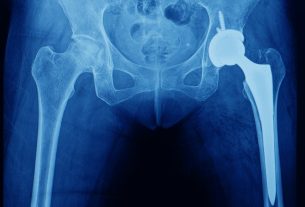The Lancet, one of Britain’s most prestigious medical journals, is no less interested in Israeli physicians’ worries about the Netanyahu government’s judicial reform than our own doctors are.
It has just published an article by Israelis and an expert from Washington, DC that calls it a “threat to the Health in All Policies Approach” (HiAP) plus a news story entitled “Israeli doctors vow to continue protests.”
The first article, which quoted numerous leading Israeli academics and physicians, said that “Israel’s parliament sanctioned a substantial amendment to the Basic Law, prompting apprehensions regarding power equilibrium and its potential influence on public well-being. In response, a coalition of prominent Israeli and global public health experts has united to dissect the profound ramifications of this revision.”
The authors noted that the story “transcends national borders, as the authors highlight the potential global implications of this amendment. The risk of political interests superseding public health isn’t confined to Israel alone; it sets a precedent that may echo in countries with weaker legal systems. The erosion of HiAP could have far-reaching consequences, compromising health considerations in policymaking.”
The amendment, restricts court scrutiny of the reasonableness of ministerial decisions, aiming to curtail judicial supervision over political choices, which has sparked nationwide protests and concerns, they wrote.
“As public health advocates, the co-authors of the article express their apprehension about the significant threat this amendment poses to public health and HiAP)… which was adopted globally and shaped by various health declarations, advocates for the incorporation of health implications in decision-making across sectors.”
This approach, they continued, “recognizes that health determinants extend beyond the health sector and emphasizes collaboration for better health outcomes. The co-authors stress the pivotal role of health in governance and societal well-being. However, the amendment’s potential to weaken the HiAP principle raises concerns about unchecked decisions that might neglect public health considerations.
Dr. Shelly Kamin-Friedman from the Zulat for Equality and Human Rights stated that “in Israel’s legal landscape, the absence of constitutional protection for the right to health leaves citizens vulnerable to government decisions that disregard health considerations and expert opinions with a singular avenue – filing a petition with the High Court, citing the grounds of unreasonableness.”
Through the careful examination of history, the authors paint a vivid picture of how judicial review has historically safeguarded public health. They recalled the finance minister’s decision in 2018 when the choice not to raise taxes on loose tobacco was made, in isolation from health considerations.
How does judicial reform impact doctors?
Public health advocates took to the courts, highlighting the potential dangers of such a decision on public health. The Supreme Court’s intervention forced a reevaluation, emphasizing that policies, even seemingly unrelated ones, must consider their effects on public health. This serves as a stark reminder of how judicial oversight acts as a guardian against policies that may compromise the well-being of the people.
Prof. Aron Troen, a member of the Hebrew University of Jerusalem (HU) where he directs its Nutrition and Brain Health Laboratory and teaches in the School of Nutrition Science and the School of Public Health said: “In a world where science is often overshadowed by politics, it is our duty to be the voice of reason, demanding evidence-based policies that prioritize public health and welfare. Our data speak for those who need it the most, urging us to bridge the gap between research and action.”
A more recent example involves sugary beverages. Israel’s high sugar- consumption rates contribute to escalating health issues. In 2022 a successful beverage tax was introduced, aligned with global practices and generating NIS 890 million in revenue, effectively curtailed sugary drink purchases. However, yielding to powerful industry pressures, the government abruptly revoked the tax in 2023 without due process or expert consultation. This decision, bereft of consideration for evidence-backed health concerns, underscores the need for a supreme court petition to champion public health interests over political and vested interests. The finance minister’s choice to repeal the tax, despite global health warnings and local expert advice, highlights the fragility of public health when unchecked by judicial scrutiny.
“We have diligently assessed the implications of this amendment, carefully navigating the complex interplay between judicial oversight, the imperatives of public health, and the fundamental dynamics of governance. The potential repercussions of this amendment on the equilibrium of political power and its profound impact on societal well-being must not be underestimated.” said Prof. Nadav Davidovitch, dean of the School of Public Health at Ben-Gurion University of the Negev (BGU) in Beersheba.
Prof. Hagai Levine, chairman of the Israel Association of Public Health Physicians, also voiced his concern about the overhaul: “The legal change constitutes a direct assault on public health, leaving it vulnerable to extreme and irrational ministerial decisions, devoid of defense against political or vested interests.”
Y.Tony Yang, Professor of Heath at George Washington University in Washington, DC, commented that “in an era where well-being takes precedence, the elimination of judicial oversight represents more than a mere legal alteration; it poses a threat to the essential vitality of Israel, carrying ramifications that extend globally.”
As the world emerges from the challenges of a global pandemic, the Lancet says its two articles serve “as a rallying cry for the prioritization of public health in all government decisions. It urges readers to engage in thoughtful dialogue about the delicate balance between policy, judicial oversight, and the well-being of a nation.”
The news article published in the same journal by writer Sharmila Devi (who lived in Israel for several years) wrote that “Israeli doctors say they will continue to fight against a judicial overhaul that would weaken Supreme Court oversight of government power, which medics say could lead to an erosion of liberal democracy.
Doctors have been at the forefront of protests held at least weekly throughout the country for the past few months, which have included many other groups from across society including lawyers, teachers, scientists, and army reservists.
“For the last nearly 30 Saturday nights, I have been protesting with my wife and colleagues in Jerusalem and we have been active under the banner of the ‘White Coats’ ,” said Prof. A. Mark Clarfield, head of the Center for Global Health at BGU and chairman of the Health Ministry’s inistry National Council on Geriatric Medicine.
“As a citizen, I want to continue to live in a liberal democracy…“As a doctor, I also worry about the risks to patient confidentiality if the Government suddenly decided it wanted to know who has HIV, for example. Another concern is abortion, which is not a big issue here, but some extremists may want to limit it,” said Clarfield.
“The protestors accuse Israeli Prime Minister Benjamin Netanyahu of seeking to dilute judicial independence as he battles legal proceedings over corruption charges. Under Israel’s 1995 National Health Insurance law, citizens and residents have the right to receive health care at a reasonable quality, ‘within a reasonable time and at a reasonable distance from their place of residence’; however, there is no formal definition of reasonable. Until now, the Supreme Court has had the authority to strike down all government decisions, including those related to health, that it deems ‘unreasonable,’ ” the news article continues.
The Israeli Medical Association (IMA), which says it represents about 95% of doctors, held a brief strike on July 25, and has vowed further action. “I’m very proud that the IMA has held a number of votes over this and more than 90% voted in favor of action and 75% in favor of a strike”, said Prof. Ephrat Levy-Lahad, a member of the IMA and internal medicine and medical genetics at HU who is the leading medical geneticist at Jerusalem’s Shaare Zedek Medical Center.
“On the patient side, the notion of patient equality is being challenged and patients might be separated on the basis of religion, Arab and Jew, men and women,” she said. “On the physician side, the government wants to approve parallel labor associations, competing medical associations and new certification and professional licensing bodies that could require less extensive studies and lower standards.”
Devi also reported that Israeli health professionals are particularly concerned about a possible brain drain as doctors seek to flee what has been called Israel’s biggest domestic crisis. “It is very alarming that so many physicians are talking so openly about relocation when there’s already some of the lowest ratios of physicians to population in some parts of the country,” said Prof. Orly Manor, head of HU’s Braun School of Public Health and Community Medicine.
“While, in a free society it is wrong, in my view, to judge any individual for their decision to seek relocation, there is so much that can and should be done that as a whole the medical profession should lead from within and stand guard from within,” said Prof. Karl Skorecki, former dean of Bar-Ilan University’s Azrieli Faculty of Medicine.
Israeli doctors show no sign of giving up. “Hatred is a communicable disease. It divides us and separates us. The health workforce is the leading sector where all of us are working equally and serve all in need.” said Prof. Dorit Nitzan of BGU, Khitam Muhsen of Tel Aviv University and Prof. Manfred Green of the University of Haifa.


